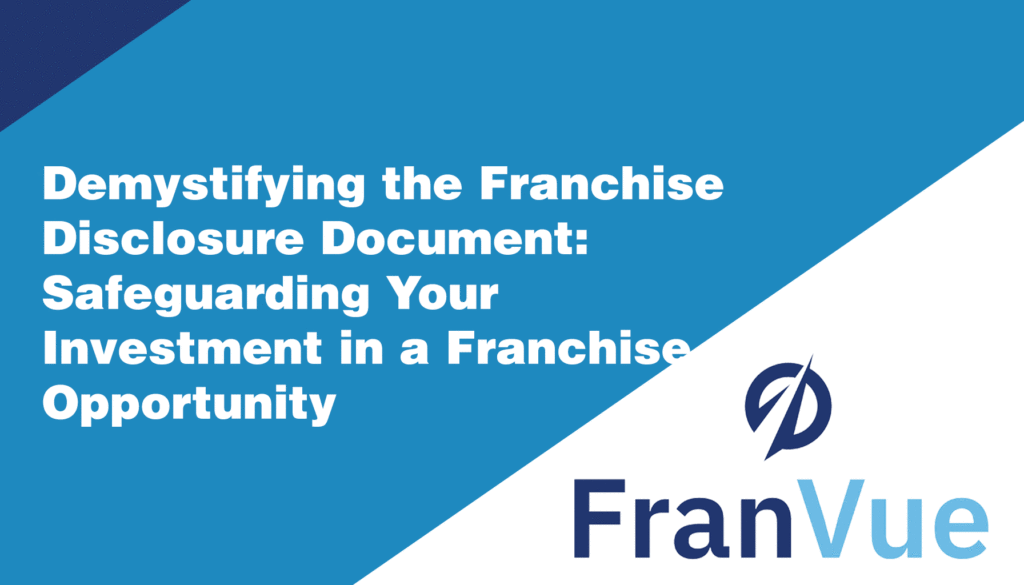Entering the world of franchising is a significant decision, filled with potential and opportunities. A key element in this journey is the Franchise Disclosure Document (FDD), a vital tool designed to protect your investment. As a certified franchise consultant, I often emphasize to my clients the critical role of the FDD in providing a transparent and comprehensive view of a franchise opportunity. In this article, let’s explore why the FDD exists, its mandate by the Federal Trade Commission (FTC), and how it serves to protect prospective franchisees.
The Origin and Purpose of the Franchise Disclosure Document
The FDD is a legal requirement in the United States, mandated by the FTC, under the Franchise Rule. This rule was established to ensure that potential franchisees have all the necessary information to make an informed decision about their investment. The FDD exists primarily to level the playing field in the franchisor-franchisee relationship, offering transparency and minimizing the risk of misleading or incomplete information.
How the FTC Mandates the FDD
The FTC’s Franchise Rule requires franchisors to provide the FDD to prospective franchisees at least 14 days before any contract is signed or any payment is made. This rule ensures that potential franchisees have sufficient time to review and understand the complexities of the franchise they are considering. The FTC’s oversight ensures that franchisors maintain honesty and clarity in their disclosures, fostering a fair and open franchising environment.
Protecting Your Investment with the FDD
The FDD is designed with your protection in mind, covering a wide range of topics that are crucial to understanding the franchise opportunity. Some of the key elements include:
- Franchisor’s Background: Information about the franchisor’s history, experience, and business track record.
- Initial and Ongoing Costs: A detailed breakdown of the initial investment, ongoing fees, and any other financial commitments involved in the franchise.
- Franchisee Obligations: Outline of the franchisee’s responsibilities, including compliance with operational guidelines and standards.
- Territorial Rights: Explanation of territorial rights and any exclusivity clauses.
- Legal History: Disclosure of any legal actions involving the franchisor, which can indicate potential red flags.
- Financial Performance Representations: If provided, these offer insight into the potential financial performance of the franchise.
The Role of a Certified Franchise Consultant
While the FDD is a comprehensive document, its complexity can be daunting. This is where the role of a certified franchise consultant becomes invaluable. A consultant can help you navigate the nuances of the FDD, ensuring you understand each component and its implications for your franchise decision. They can guide you through the process of due diligence, helping to assess the franchise opportunity in the context of your personal and financial goals.
Conclusion
The existence of the Franchise Disclosure Document is a testament to the FTC’s commitment to protecting prospective franchisees. It ensures that you, as a potential investor, have access to all the critical information needed to make an informed decision. Understanding the FDD is a crucial step in evaluating any franchise opportunity, and consulting with a certified franchise consultant can provide the expertise and guidance needed to navigate this complex yet essential document. Remember, a well-informed decision is the cornerstone of a successful franchise venture.


